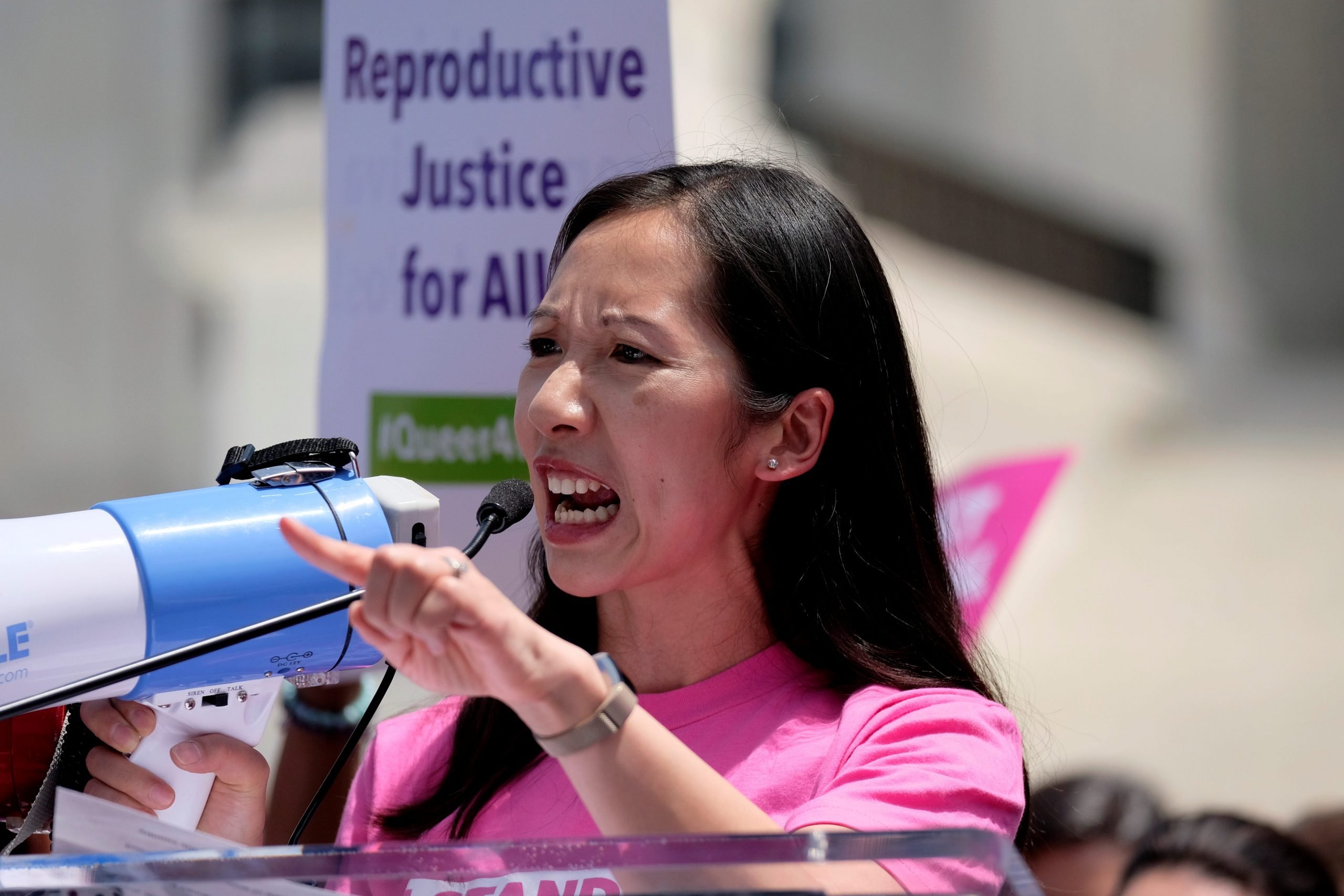
Reuters
- Former Planned Parenthood President Dr. Leana Wen said she was told to say abortion at every interview.
- The pressure clashed with her vision to promote the organization's non-abortion healthcare services.
- Wen describes the tension between progressive politics and mainstream healthcare in her new book.
- Visit Insider's homepage for more stories.
On her first full day on the job as Planned Parenthood's president, Dr. Leana Wen appeared on ABC's "The View" to talk about her vision for the organization.
As the first physician at Planned Parenthood's helm, Wen was dedicated to centering the organization in Americans' psyche as a nonpartisan healthcare service provider. She talked about how women's healthcare is healthcare, and how receiving screenings and medications doesn't need to be political.
When the segment wrapped, Wen, who'd left her role as Baltimore's health commissioner for the gig, was elated that it had resonated with the live, cheering audience.
But her new colleagues at Planned Parenthood's headquarters were not: Wen had failed to say the word "abortion."
In her new book, "Lifelines: A Doctor's Journey in the Fight for Public Health," out July 27, Wen details how the tension between her mission and Planned Parenthood's advocacy smoldered from that first day until she left her post just eight months later.
'You need to talk about abortion at every media interview'
After the ABC segment, a board member texted Wen: "Next time, make sure you talk about abortion," Wen wrote in the book.
"You need to talk about abortion at every media interview," a national staffer told her too. "You're the president of Planned Parenthood. People expect that from you."
"Not saying 'abortion' sounds as if you're ashamed of it," another told her later.
Wen, who is pro-choice, took the stance that she and the organization should advocate for all reproductive health services, like birth control and sex ed, which could reach more people and help reduce the need for abortions.
She believed using "pro-abortion" language alienated people whose decision to get one was painful. And, she said, most Americans have complicated, nuanced views on abortion. She believed Planned Parenthood should meet them where they are, she thought.
But Wen said her colleagues viewed that position as trying to "cover up" abortion. They said acknowledging some patients' difficulty with seeking the procedure was "dramatic" since it's common, usually simple, and generally safe.
"If we don't talk about abortion openly, loudly, and proudly, as a positive moral good, then we are further stigmatizing it and the people who need it," Wen said one colleague told her.
Planned Parenthood's local affiliates across the country, whom Wen visited, seemed to better align with her view, she implied - they were the ones providing pap smears and prescriptions, not just abortions. But Wen had to answer to Planned Parenthood's board.
Wen said she had to choose between being a leader of progressive politics or mainstream healthcare
Wen said, ultimately, the tension between her and those around her wasn't just about abortion but about politics.
Planned Parenthood sees itself as a liberal advocacy organization, outspoken on issues loosely related to healthcare, like net neutrality, defunding the police, and DC's statehood, she wrote.
As the 2020 election loomed and abortion access came under intensified threat, the organization wanted to double down on its pro-abortion messaging. "I was given a choice: change, or leave," Wen wrote. Before her lawyers could come to a mutually agreed upon departure statement, the board voted her out. She learned about it through a New York Times news alert on her phone.
And yet, Wen wrote she has "deep empathy" and "profound appreciation" for Planned Parenthood staffers.
"That Planned Parenthood is still in existence, over one hundred years after its founding, is a testament to the courage, ingenuity, and resilience of those who put themselves on the line for its mission," she wrote.

